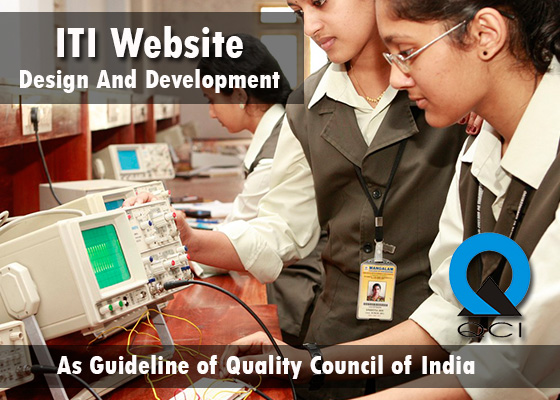Sr.Secondary : Chemistry (313) By Dr.Rajeev Prasad
According to present scheme of school education at Senior Secondary stage, chemistry emerges out as a separate discipline.
The present chemistry course has been developed basically around the themes:
- Why do chemical reactions occur? What is the quantitative relationship among reacting constituents in a chemical reaction?
- How far and how fast will a chemical reaction proceed under a given set of conditions?
- Can we predict whether a chemical reaction will occur or not?
- What is the relation between the structure of a chemical substance and its functions/properties?
- In what way is a chemical reaction relevant for getting new types of substances and materials for daily life and chemical industries?
Some interdisciplinary aspects have also been provided to make the course more meaningful and functional.
This Chemistry Course has three parts, I and II consist of theory portion and part III is a practical manual. Part I and II of theory portion has eight modules.
Part-I consists of five modules namely as : Some basic concepts of chemistry, Atomic Structure and Chemical Bonding, States of matter, Chemical Energetics, and Chemical Dynamics.
Part-II consists of three modules namely: Chemistry of Elements, Chemistry of Organic Compounds, and Chemistry in Everyday Life. Each module is further divided into different lessons.
Course Overview
Module I Some Basic Concepts of Chemistry Alloted Marks: 04
1. Atoms, Molecules and Chemical Arithmetic
Module II Atomic Structure and Chemical Bonding Alloted Marks: 10
2. Atomic Structure
3. Periodic Table and Periodicity in Properties
4. Chemical Bonding
Module III States of Matter Alloted Marks: 08
5. The Gaseous State and Liquid State
6. The Solid State
7. Solutions
8. Colloids
Module IV Chemical Energetics Alloted Marks: 06
09. Chemical Thermodynamics
10. Spontaneity of Chemical Reactions
Module V Chemical Dynamics Alloted Marks: 12
11. Chemical Equilibrium
12. Ionic Equilibrium
13. Electrochemistry
14. Chemical Kinetics
15. Adsorption and Catalysis
Module VI Chemistry of Elements Alloted Marks: 18
16. Occurrence and Extraction of Metals
17. Hydrogen and s-Block Elements
18. General Characteristics of the p-block Elements
19. p-block Elements and their Compounds – I
20. p-block Elements and their Compounds - II
21. d-Block and f-Block Elements
22. Coordination Compounds
Module VII Chemistry of Organic Compounds Alloted Marks: 18
23. Nomenclature and General Principles
24. Hydrocarbons
25. Compounds of Carbon Containing Halogens
(Haloalkanes and Haloarenes)
26. Alcohols, Phenols and Ethers
27. Aldehydes, Ketones and Carboxylic Acids
28. Compounds of Carbon Containing Nitrogen
29. Biomolecules
Module VIII Chemistry in Everyday Life Alloted Marks: 04
30. Drugs and Medicines
31. Soaps, Detergents and Polymers
32. Environmental Chemistry
Total Marks : 80
CURRICULUM FOR PRACTICAL WORK IN CHEMISTRY
1. Basic Laboratory Techniques
2. Characterization of Chemical substances
3. Preparation of dilute solutions
4. Experiment related to pH change
5. Surface Chemistry
6. Electrochemistry
7. Thermochemistry
8. Chemical Equilibrium
9. Chemical Kinetics
10. Preparation of Inorganic Compounds
11. Preparation of Organic Compounds
12. Chromatography
13. Detection of Elements
14. Characteristic Tests for cabohydrates; fats and proteins and their detection
15. Volumetric Analysis (Quantitative analysis)
16. Qualitative Analysis
SCHEME OF PRACTICAL EXAMINATION
There will be a practical examination of 20 marks and 3 hours duration.
The distribution of marks is as follows.
1. Salt Analysis Alloted Marks: 4
(one cation + one anion)
2. Volumetric Analysis Alloted Marks: 6
(i) write-up in which student may be asked to write brief method, indicator, equation, end point.
(ii) Set-up of experiment
(iii) Results
3. (i) Detection of elements in an organic compound Alloted Marks: 4
(ii) Detection of functional group
OR
Setting up of one experiment from experiments at serial
number 2 to 10, 12 and 13.
4. Viva-voce Alloted Marks: 3
5. Record book Alloted Marks: 3
Total Marks: 20
CAREER OPPORTUNITIES AFTER STUDYING CHEMISTRY
Chemical sciences (Chemistry) offer access to a wide range of careers. Chemistry is the study of substances, their makeup and applications. In fact it is the study of all materials and is vital to every aspect of our lives. Organic Chemistry, Inorganic Chemistry, Analytical chemistry and Biochemistry are the main branches of chemistry.
The career options in chemistry are practically endless! However, employment options depend on how far the education, training and experience taken. A chemistry or biochemistry degree can lead to career paths in professions such as medicine, pharmacology, agriculture, chemical engineering, forensic science, etc.
Some of the Important career opportunities after studying chemistry at senior secondary level is as
- Career opportunities in Petrochemical and Pharmaceutical industries
- Analytical chemist
- Clinical biochemist
- Forensic scientist Chemical development engineer
- Scientific journalist Toxicologist
- Teacher/Professor
- Quality controller
- Laboratory assistant
- Research associate/ Research assistant
- Career opportunities in Plastics and Polymer Industry
- Career opportunities in Textile Industry
- Biochemistry
- Biotechnology.

Instructor bio

Dr.Rajeev Prasad
National Institute Of Open Schooling (NIOS)
Course certificate
For Senior Secondary Level Passing Certificate
1. In order to obtain Senior Secondary (12th) passing certificate from NIOS, the learners are required to
enroll in minimum five subjects including one or maximum two languages on SWAYAM. For examination
and certification the learners must also enroll with NIOS
.
2. The admission in NIOS is done through online mode only. The learner can visit the official website of
NIOS i.e., www.nios.ac.in or www.sdmis.nios.ac.in . The learner can also visit the Regional Centre or
nearest AI (study Centre) or designated Common Service Centre (CSC), the list of which is available on
the website and take help for online admission in NIOS.
Summary
| Course Status : | Upcoming |
| Course Type : | Core |
| Duration : | 24 weeks |
| Start Date : | 01 Apr 2021 |
| End Date : | 30 Sep 2021 |
| Exam Date : | |
| Enrollment Ends : | 30 Sep 2021 |
| Category : |
|
| Credit Points : | 10 |
| Level : | School |
ITI Student Resume Portal
रिज्यूम पोर्टल का मुख्य उद्देश्य योग्य छात्रों की जानकारी सार्वजनिक पटल पर लाने की है जिससे जिन्हें आवश्यकता हो वह अपने सुविधा अनुसार छात्रों का चयन कर सकते हैं


